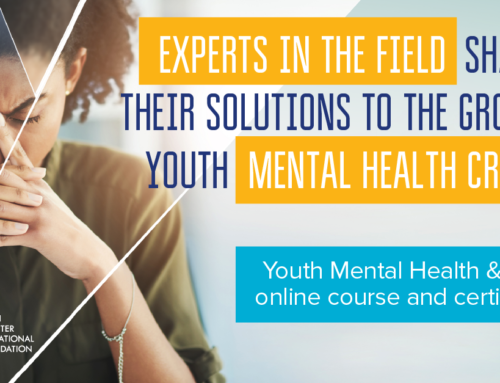
The greatest gifts you can give your children are the roots of responsibility and the wings of independence. -Denis Waitley
As parents, we have the tremendous responsibility of molding new little people into well-rounded, responsible, independent, high-quality adults. Parents are responsible for being “where the buck stops” for their children. Other adults in their life can have an impact, but parents have the specific responsibility of ensuring that their children are cared for and brought up well.
Unfortunately, we can’t always trust the school to cover all the bases, and we shouldn’t. We shoulder the greatest responsibility for raising the children we brought into the world. While outside education is helpful, we must be vigilant to fill the gaps. The school system fails to address some crucial aspects of education, including preparing our children to choose, prepare for, enter, and succeed in a career.
After Graduation
Sometimes, teens aren’t quite ready to begin their adult lives directly out of high school. It can be a shock, literally and culturally, when they leave the familiar routines of the last twelve years. Whether your graduate chooses to get a job, attend college, or take a gap year, the vital point is that they have the foundation necessary to forge a productive future for themselves.
These first few months and years on their own will tell the story of their upbringing. This is where we, as parents, receive our GPA. It is nerve-wracking letting our kids go and watching them make their own way. But this is not the time to mold and guide—that time is long past. Once they reach adulthood, our opportunity to build the crucial foundation of maturity, responsibility and independence is gone.
The good thing is that we have well over a decade before they reach this point to lovingly craft the adult we hope to see later. One way we can prepare this little person for adulthood is to give them the tools they will need to succeed in a productive career that will provide for themselves and their family.
Instill Personal Responsibility
The greatest gift that we can give our children is the concept of personal responsibility. As adults, the ability to take responsibility and appreciate accountability will affect every area of their lives, from the workplace to personal relationships. Individuals who fail to practice personal responsibility struggle through life.
The term “personal responsibility” casts a wide net. NewFolks notes, “Of course, responsibility is a comprehensive term that incorporates many facets such as dependability, accountability, accepting credit, admitting mistakes, keeping your word, and meeting obligations.”
Children should begin learning this character trait of responsibility while at home long before they practice it elsewhere. Even toddlers can start to build a good foundation for this life attribute. Parents must encourage their kids from a young age to accept the responsibility of owning their mistakes, caring for themselves (in an age-appropriate manner), and carrying their weight around the house (again, in an age-appropriate way).
Some simple ways parents can create an atmosphere of personal responsibility around their home are:
- Cultivating a habit of acceptance instead of excuses
- Requiring age-appropriate chores while emphasizing why it’s important that children help around the home
- Insisting on children maintaining their own self-care and hygiene (age appropriate)
- Teaching kids to care for their own items, school supplies, and equipment (clothes, lunch boxes, sports equipment, etc.)
- Encouraging children to accept consequences and acknowledge the part that they played in the process instead of blaming others
- Accepting failure without shame, showing the children that mistakes and failure are okay but are lessons to learn from
- Leading by example
Personal responsibility is vital to a successful career and productive life. Indeed explores this truism:
“One of the most important aspects of a healthy work environment is an atmosphere of personal responsibility…Employees with a strong sense of responsibility are likely to show more commitment to their organization, feel more secure in their roles and have greater job satisfaction. When you accept responsibility at work…It can also provide you with more opportunities for personal growth and professional development. Additionally, a sense of responsibility in your work can help you realize that every mistake is an opportunity to learn.”
Establish Critical Thinking
Critical thinking is a life skill that enhances every area of life, including work life. To remain a valuable employee and succeed in a variety of ways, your child must establish the skill of critical thinking.
VeryWellFamily describes critical thinking as “… the ability to imagine, analyze, and evaluate information in order to determine its integrity and validity, such as what is factual and what isn’t. These skills help people form opinions and ideas as well as help them know who is being a good friend and who isn’t.”
In the workplace, critical thinking skills enable an employee to anticipate and solve problems, offer creative solutions or concepts, follow an idea to a logical conclusion, or evaluate whether something is beneficial or detrimental in the workplace or to the company itself.
“…in the workplace, where choices about how to complete tasks, communicate information, relate with coworkers, and develop strategy are so common, critical thinkers are extremely valuable…” PMC Training evaluates critical thinking and the workplace. “Using your critical thinking skills in the workplace will define you as a problem solver. This is not only useful career-wise…it also establishes you as a leader among your fellow team members.”
If your child wants to excel in their career, critical thinking skills are an absolutely necessary tool that is an absolute must.
Acknowledge Others
Our children don’t live in a vacuum and won’t work in one, either. Recognizing the efforts and successes of others will strengthen their relationships and cultivate an attitude of humility within themselves.
As kids, they can practice this concept in any number of ways. They can encourage a sibling who is feeling down by pointing out that sibling’s strengths. They can learn to express gratitude without being prompted. They can offer unsolicited praise to other children for accomplishments. Acknowledging the hard work and skills of others will build strong relationships in every area of your child’s life. Recognizing others will also cultivate a spirit of humility, as they “esteem others better than themselves,” as the Bible puts it.
Forbes explains this concept. “One of the best ways to build relationships in the business world is to express gratitude and overtly acknowledge others. That means sending a note of thanks to a colleague for their contributions to your presentation, or thanking your boss in front of the team for the leadership she provided, or letting your peer’s boss know what an amazing job he did on the last project. Giving thanks is a powerful way to strengthen bonds— – and it usually makes you feel good too.”
From marriage to employment, acknowledging others is a tendency that can enrich and stabilize your child’s life long-term.
Maintain Education
Whether your child wants to go to college or not, investing in their education is a must for career success. No matter what job, the basics of reading, writing, and math are essential. Without a foundational education, your young adult will struggle to land a decent career. Basic education is the absolute minimum for a nominal workplace experience.
For true success, your child should develop a love of learning and a thirst for knowledge. An individual who is constantly learning is constantly growing. The University of Wisconsin notes the importance of this consistent growth. “No matter your profession, learning needs to be woven into your career path. In fact, lifelong learning can improve your career prospects, particularly now as employers face a skills gap and yearn for job candidates willing to adapt to changing needs and goals.”
Helping your child cultivate a love of learning starts at a young age and includes every area of life, from school to trivia, from household tips to skills and abilities. While school might not always be a thrill, it can help them develop an appreciation for the outcome, even if they dislike the process. If you homeschool your child, this concept can be even easier to practice since you have complete control of your kid’s education environment.
Strengthen Leadership Skills
Some people are born leaders, and others simply aren’t. But this doesn’t mean that those who aren’t naturally gifted can’t cultivate leadership qualities. Whether your kid is a natural leader or not, instilling certain leadership qualities within them is a helpful step toward their career success.
Some of these leadership attributes that anyone can cultivate are:
- Integrity
- Honesty
- Good communication
- Self-motivation
- Self-discipline
- Creative thinking outside the box
- Resilience
- Accepting and evaluating constructive feedback
- Embracing independence and self-sufficiency
Traits like these are an asset to any individual and will enhance a career in any field. According to The Balance, “Whether you’re starting out in an entry-level position and looking to move up the career ladder or you’re seeking a promotion, your leadership skills will be among your most valuable assets.”
Set Them Up for Success
The foundational principles you teach your kids at home will absolutely define certain aspects of their adult successes and failures. While they will need to take personal responsibility for their own mistakes and choices, you can start them on the right path.
Whether you’re embracing the opportunity to learn from a mistake or cultivating leadership skills, how you set the stage will help determine how the production will run. Don’t be timid; don’t let fear keep you from taking bold steps toward helping your child succeed later in life. Your influence, example, and approach are invaluable stepping stones toward a brilliant career.





[…] as a parent, grandparent, teacher, or community member can help the younger generation towards a future career. Of course, it’s going to look much different for a 6-year-old versus a 16-year-old, so today, […]
[…] But is that how we want the future to be? Do we want to leave the future up to students who rely on an internet search to answer their questions? Or do we want to entrust our nation to students who can apply their knowledge to problems and solve them—students who can innovate new technology that will help protect and lead America into a successful future? […]
[…] as a parent, grandparent, teacher, or community member can help the younger generation towards a future career. Of course, it’s going to look much different for a 6-year-old versus a 16-year-old, so today, […]